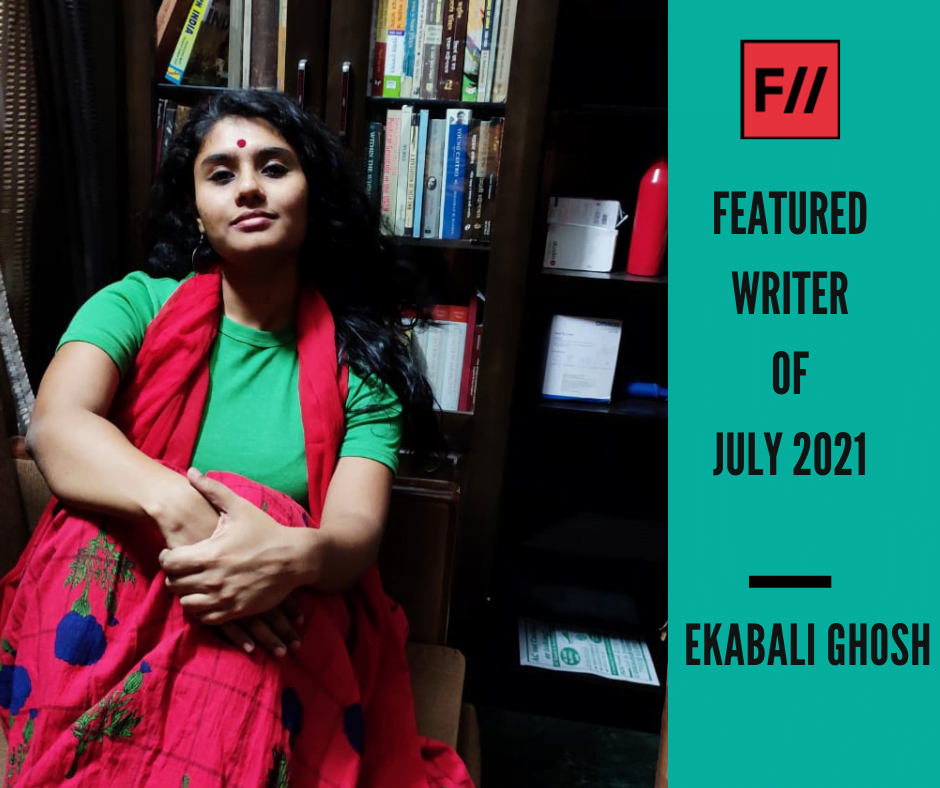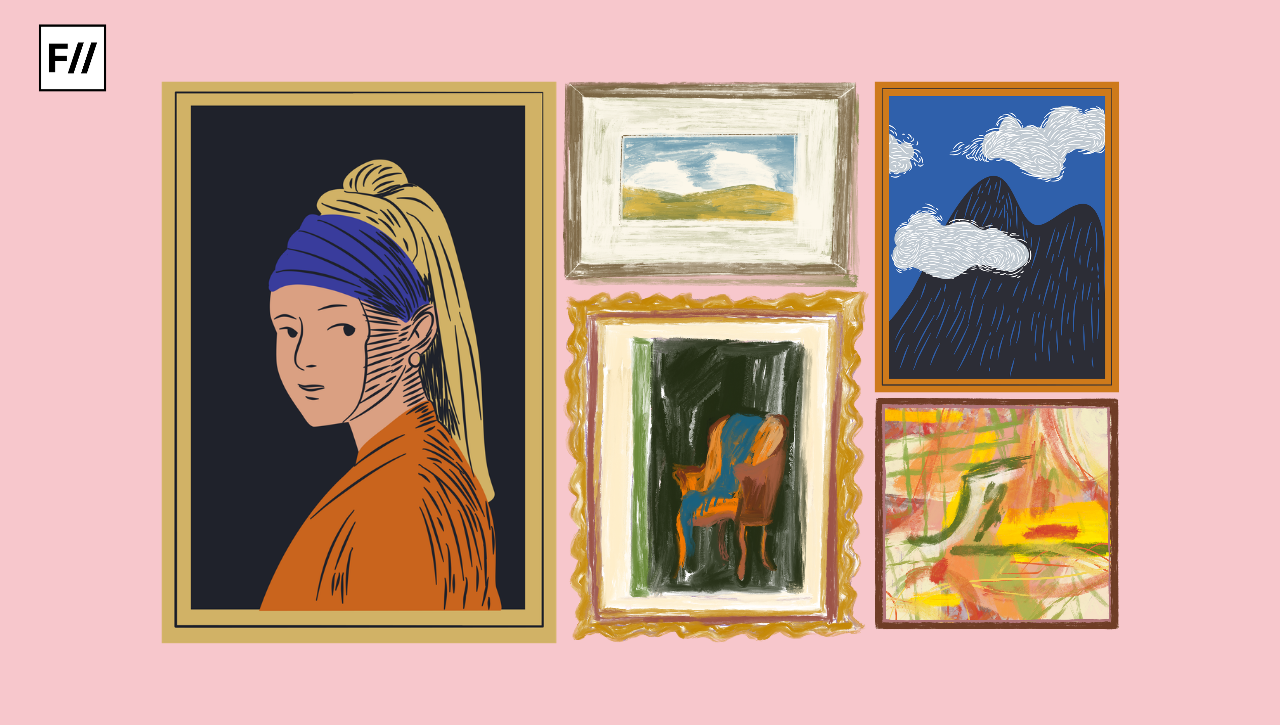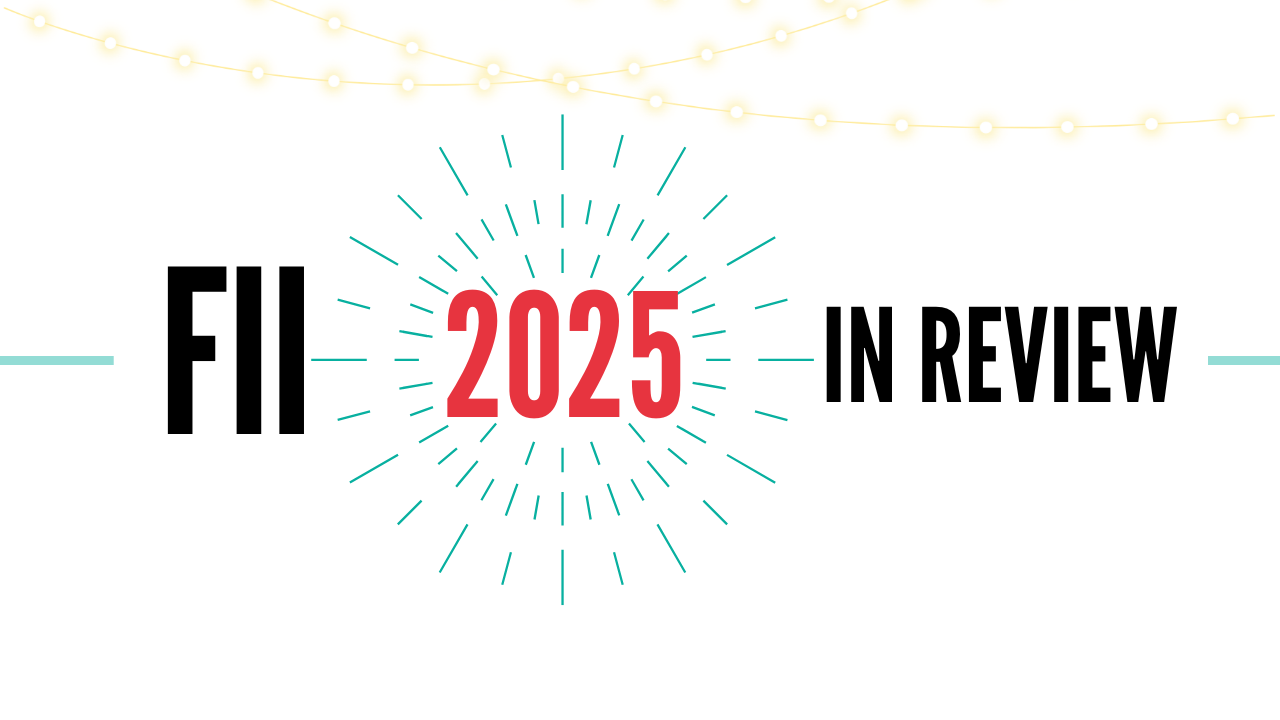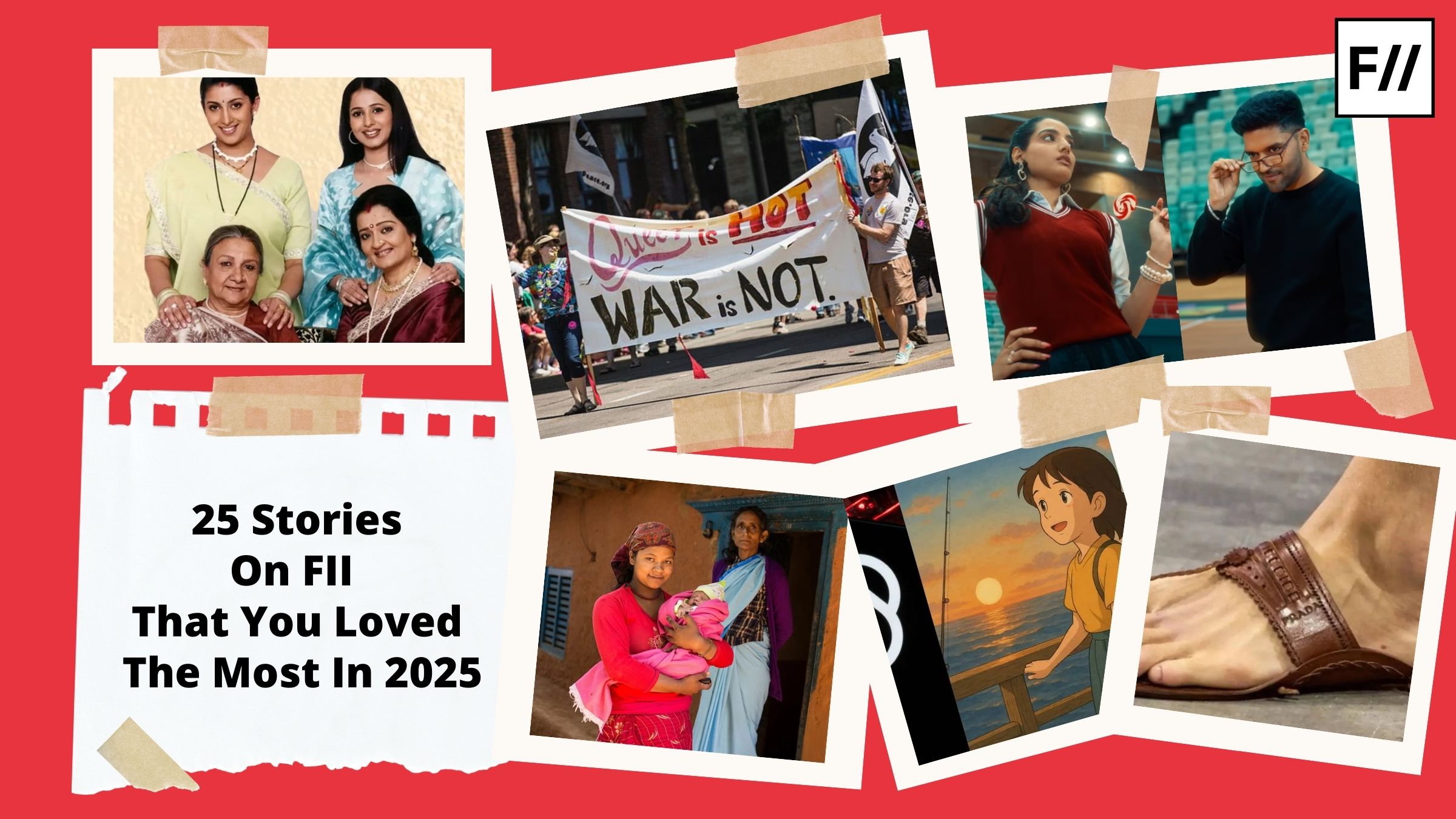We have been featuring the best writers from our writers’ community for their committed contribution to FII, making it what it is today. FII would not exist if not for the passionate and loyal feminist writers’ community that we have steadily been building over the last three years. For July 2021, we feature Ekabali Ghosh.
An M.Phil student in the Department of English, Jadavpur University, Ekabali Ghosh is a feminist activist with over four years experience of organising on the ground. She founded Women Against Sexual Harassment, with a vision to support survivors of sexual violence and an interdisciplinary network of researchers in the arena of queer studies called the Queer Studies Research Cluster. Some of her popular articles are Leftist Dadas, “Faka Flats” And The Right-Wing Dilution Of Left Feminist Anger, Does ‘Safety’ Only Mean Being Corona-Free? Anti-Queer Violence Indicates Otherwise, among others.
FII: Tell us a little about yourself and what you do.
Ekabali Ghosh: I am primarily a feminist activist and researcher. Much of my academic output is intended to be of use to various strands of feminist politics including but not limited to Marxist, Ambedkarite and queer feminism. I have been deeply involved in the movement to curb sexual violence in university spaces.
FII: How did you become a part of the FII writer family?
Ekabali Ghosh: I submitted a pitch on how heterosexed the culture of recruitment among several university based left organizations are. FII let me use their platform as a guest writer. I made the argument that leftist male students, the older and sexist ones or “dadas”, are constantly anxious about the success of left feminists. When the article came out on FII, Bangali left social media raised a furore against it. Members of one communist organization even threatened to sue FII! Anyway, other than that I wrote three other articles as a guest and then I was upgraded to a contributing writer.
FII: How and when did you become a feminist? Which issues within feminism are close to your heart?
Ekabali Ghosh: That’s a very interesting story, you know. As a teenager, I had so many misconceptions about feminism but I was acutely aware of women’s oppression. Every sexist comment used to infuriate me but I could not find the words to express my anger. When my misconceptions about feminism were finally cleared in university by teachers, guest lecturers and scholars, I found my own voice. I suffered sexual assault in my undergraduate days and the fight for justice was futile and tedious. Around this time, feminist discourse and politics became my home. Feminist activists who I didn’t know personally became so close to me and several of us survivors from educational spaces got together and formed a platform for ourselves. We organized protest meetings and support groups. I had become an activist out of necessity and quite unconsciously too. Because of my first-hand experience, I am extremely concerned about sexual violence.
FII: What is your favourite piece on this site that you have written, and your favourite piece on this site that you have read? Why did they strike you?
Ekabali Ghosh: So far, my favourite piece written by me concerns India’s COVID vaccine failure. I wrote it in May 2021 when the second wave, oxygen crisis and vaccine shortage had all hit India together. After the FII article, I wrote a longer piece on the same topic for International Viewpoint. I am actually quite excited about FII’s current mood of the month, which is sustainability. Two articles have struck a chord with me. One of them is about police brutality in Thoothukudi by Maithri and the other on climate refugees by a guest writer, Anoushka M Marak.
FII: What do you like to do when not writing about gender and social justice?
Ekabali Ghosh: Well, I do like to eat out a lot but that has taken a back seat during the pandemic. You can also find me on the streets protesting. I always insist that we need to go beyond online media and organize ourselves because long term change cannot come from posting on Facebook. It is extremely easy to tick certain boxes by saying the right things on social media without critical reasoning but street level activism is far more useful and difficult. Social media is also a great echo chamber. You will observe this when before elections your social media is flooded with CPIM (or left front) propaganda but once the election results are out, you realize that that social media presence does not reflect in real time votes. So, I think left and anti-caste minded feminists have to organize on a mass scale and some efforts have already been made in this direction.
FII: What do you like about FII and our work? What more would you like to see from us?
Ekabali Ghosh: One of FII’s strong points is definitely its ability to talk about caste and patriarchy together. I would however like to see more Marxist analyses which are caste and gender sensitive because I am concerned that these movements are drifting further apart from one another.
FII thanks Ekabali for her timely and valuable contributions. We are incredibly grateful to have her as a part of our writers’ community and appreciate her for her deeply informative writing. Check out her articles here. She can be found Instagram and Facebook.
About the author(s)
Feminism In India is an award-winning digital intersectional feminist media organisation to learn, educate and develop a feminist sensibility and unravel the F-word among the youth in India.




